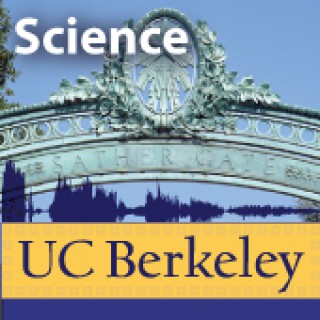Podcast appearances and mentions of terry hazen
- 8PODCASTS
- 8EPISODES
- 43mAVG DURATION
- ?INFREQUENT EPISODES
- May 27, 2015LATEST
POPULARITY
Latest podcast episodes about terry hazen
Recently, Terry Hazen was announced as the new head at the Institute for a Secure and Sustainable Environment at the University of Tennessee in Knoxville. Hazen brings an impressive set of environmentally related credentials with him to the new position. In addition to being the UT-Oak Ridge National Laboratory Governor’s Chair for Environmental Biotechnology, Hazen works with the Center for Environmental Biotechnology; directed investigation and recovery efforts surrounding the Deepwater Horizon oil spill; and was a senior scientist at Lawrence Berkeley National Laboratory in the Microbial Communities Division, the Center for Environmental Biotechnology, and the Ecology Department. Hazen also holds appointments in three UT departments—Civil and Environmental Engineering, Microbiology, and Earth and Planetary Sciences. He is a faculty fellow at ORNL and works with both the Bredesen Center for Interdisciplinary Research and Graduate Education and the UT-ORNL Graduate School of Genome Science and Technology.
Can Mother Nature Take a Punch? - Microbes and the BP Oil Spill in the Gulf of Mexico
Can Mother Nature Take a Punch? - Microbes and the BP Oil Spill in the Gulf of Mexico
The latest research findings of Dr. Terry Hazen on the BP oil spill and the role of microbial biodegradation will be presented.
Can Mother Nature Take a Punch? - Microbes and the BP Oil Spill in the Gulf of Mexico
The latest research findings of Dr. Terry Hazen on the BP oil spill and the role of microbial biodegradation will be presented.
Bioremediation: The Hope and the Hype for Environmental Cleanup
Terry Hazen discusses when it’s best to resort to engineered bioremediation of contaminated sites, and when it’s best to rely on natural attenuation. Recent advances have greatly broadened the potential applications for bioremediation. At the same time, scientists’ knowledge of biogeochemical processes has advanced and they can better gauge how quickly and completely contaminants can be degraded without human intervention. Series: "Lawrence Berkeley National Laboratory " [Science] [Show ID: 13004]
Bioremediation: The Hope and the Hype for Environmental Cleanup
Terry Hazen discusses when it’s best to resort to engineered bioremediation of contaminated sites, and when it’s best to rely on natural attenuation. Recent advances have greatly broadened the potential applications for bioremediation. At the same time, scientists’ knowledge of biogeochemical processes has advanced and they can better gauge how quickly and completely contaminants can be degraded without human intervention. Series: "Lawrence Berkeley National Laboratory " [Science] [Show ID: 13004]
Creative Science -- Groks Science Show 2005-09-28
Creativity often requires venturing into the unknown. Nobel Prize winner Martin Pearl gives advice for up and coming scientists and thinkers. Terry Hazen also joined us to talk about pathogen detecting technology.











